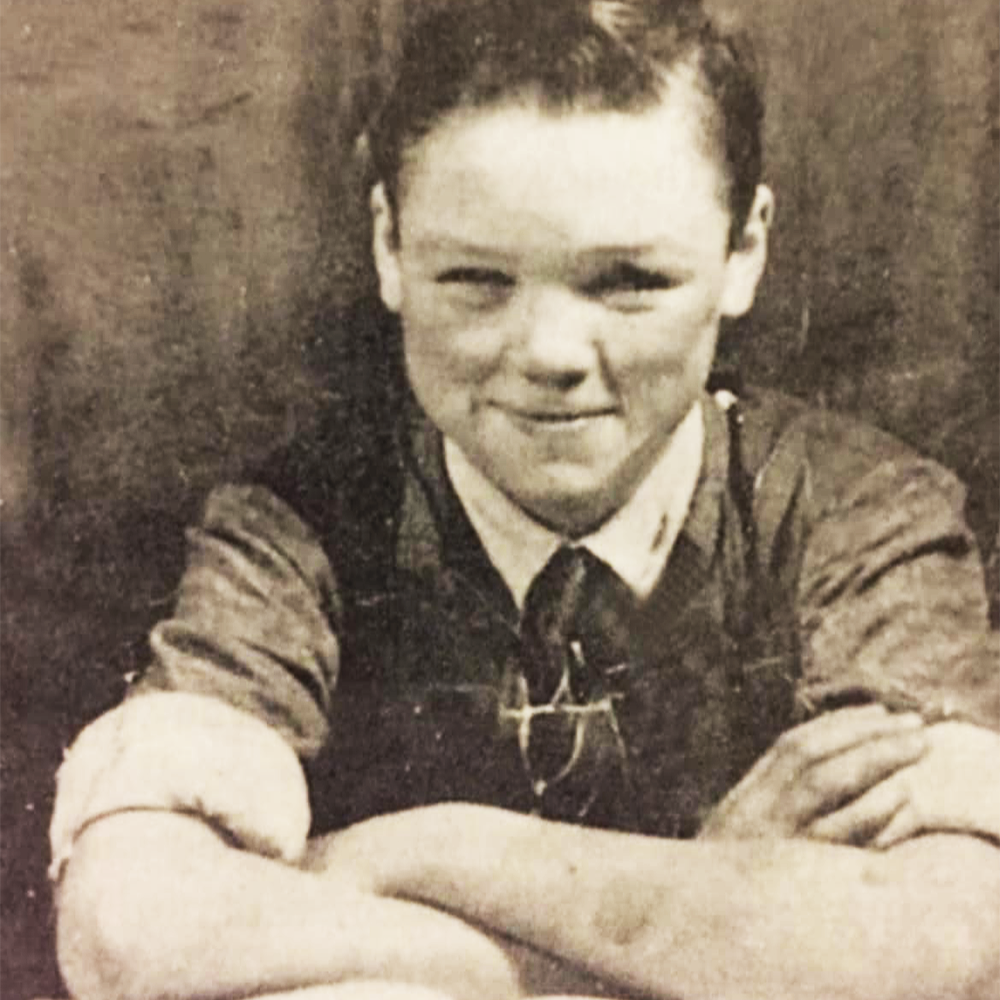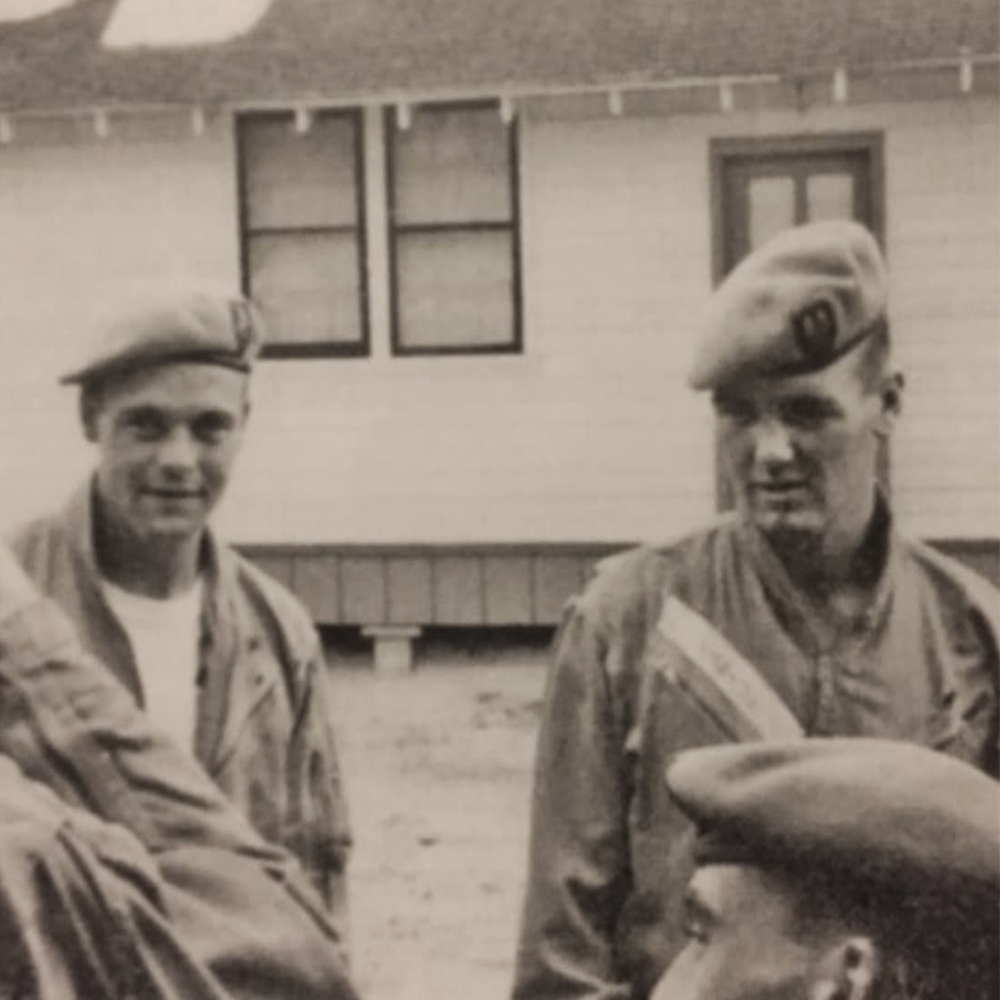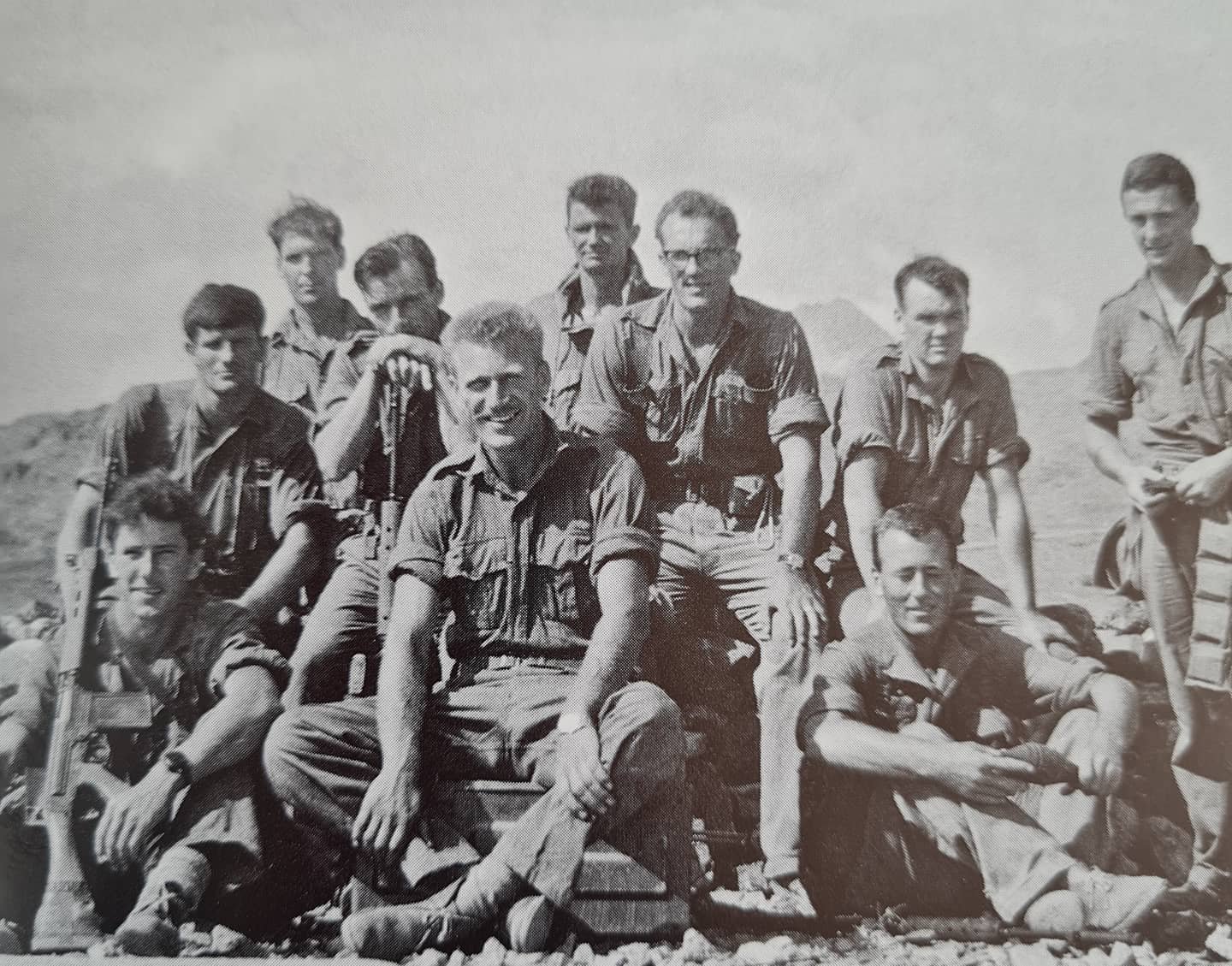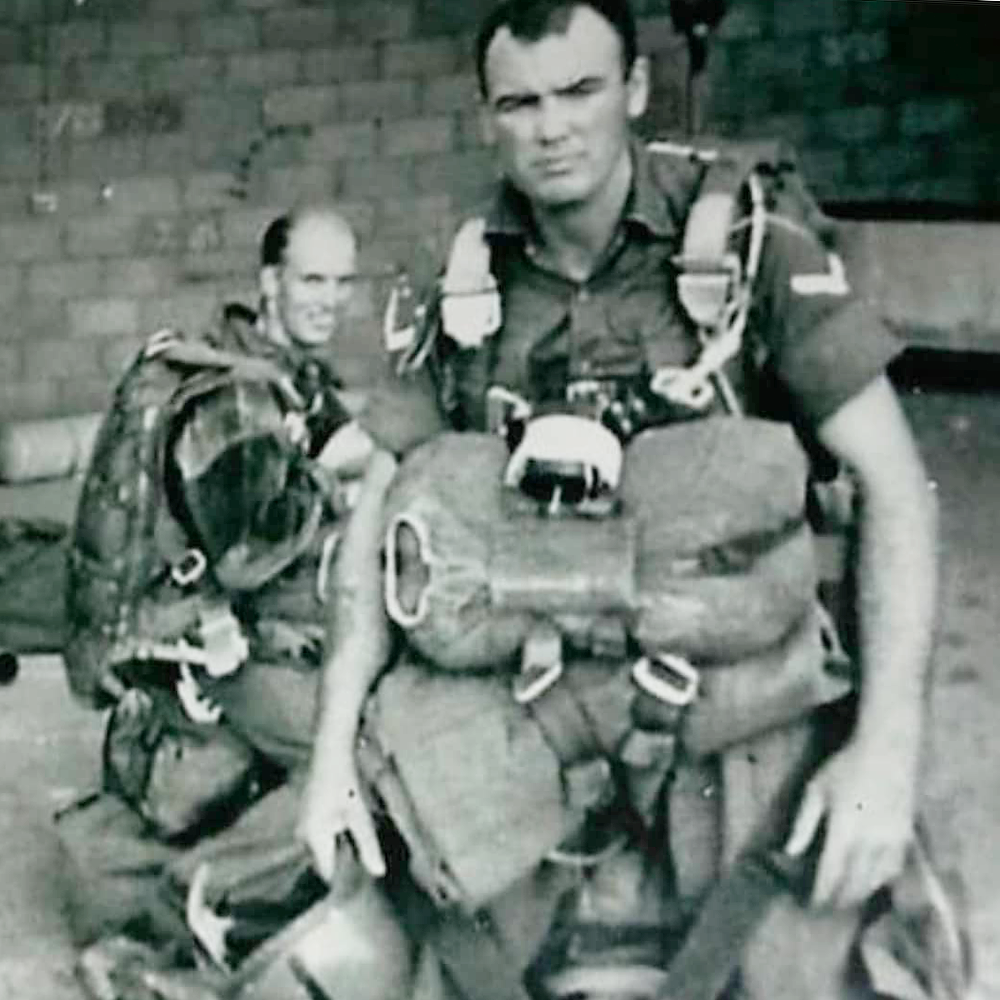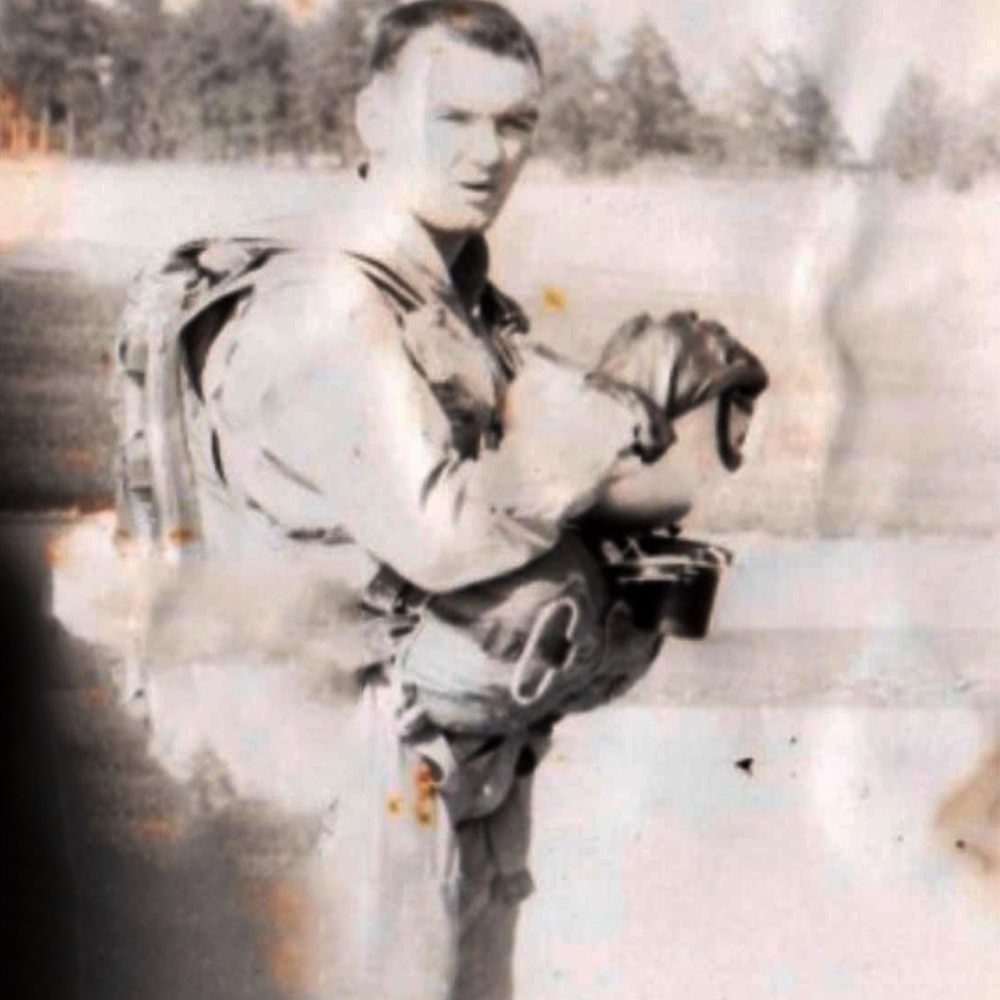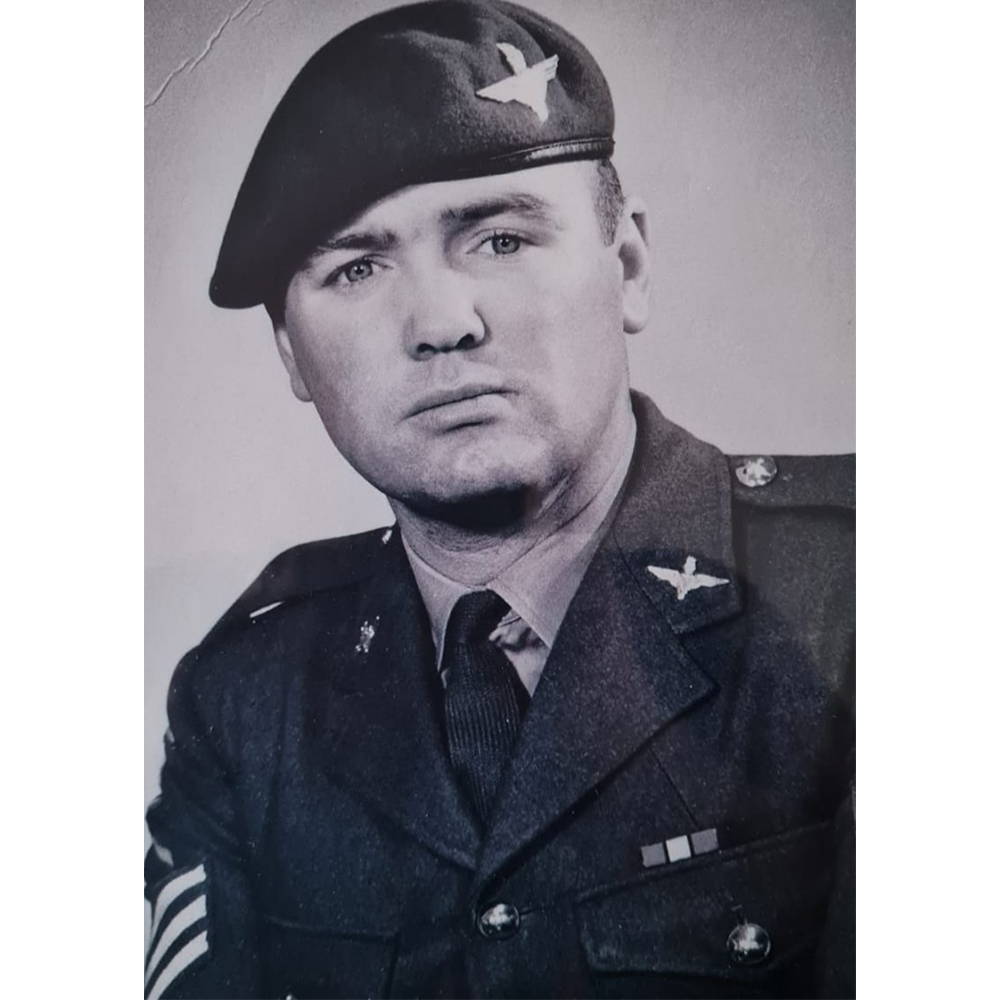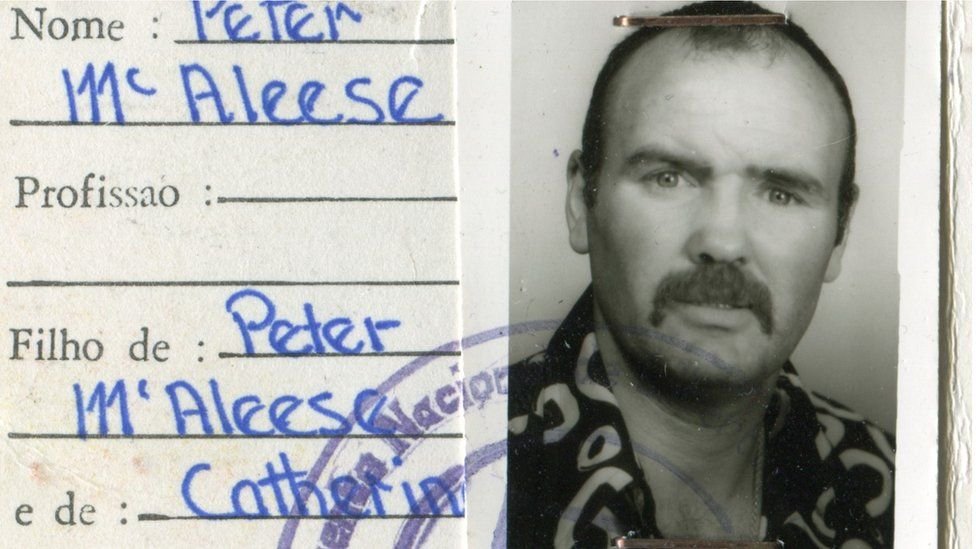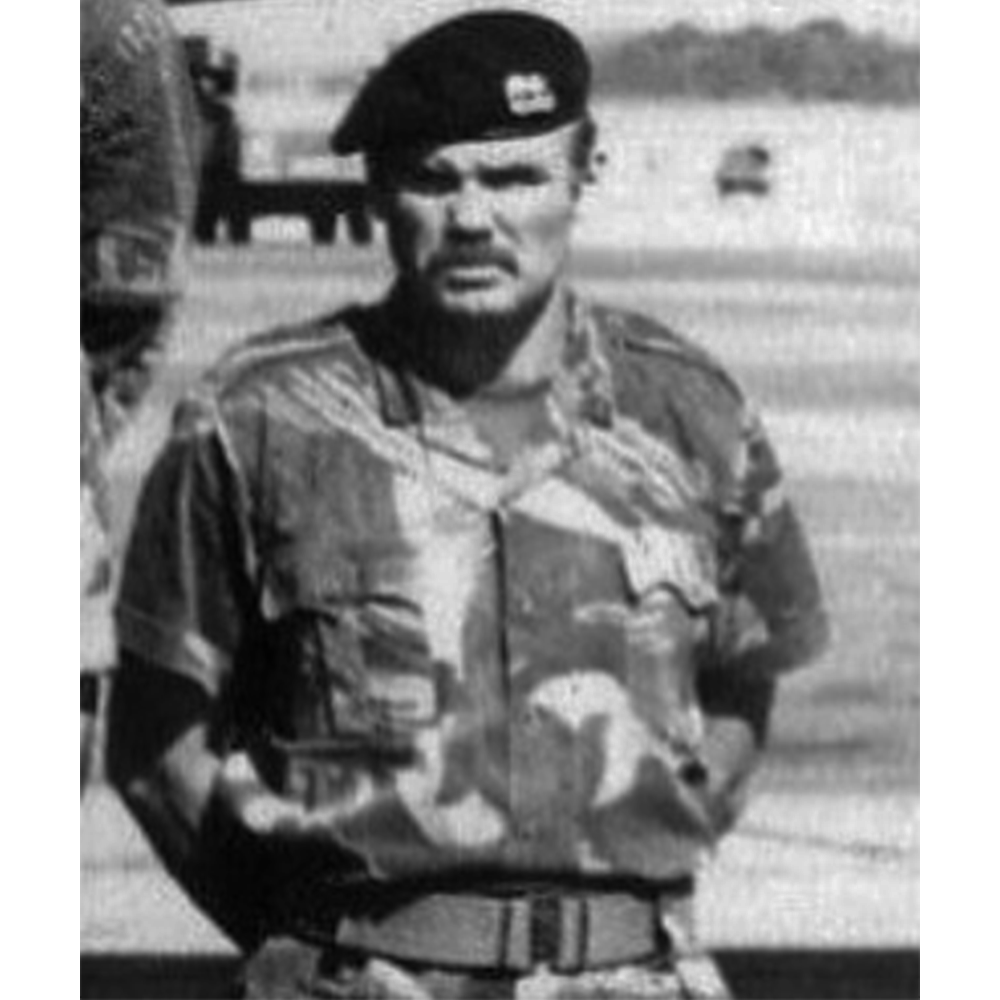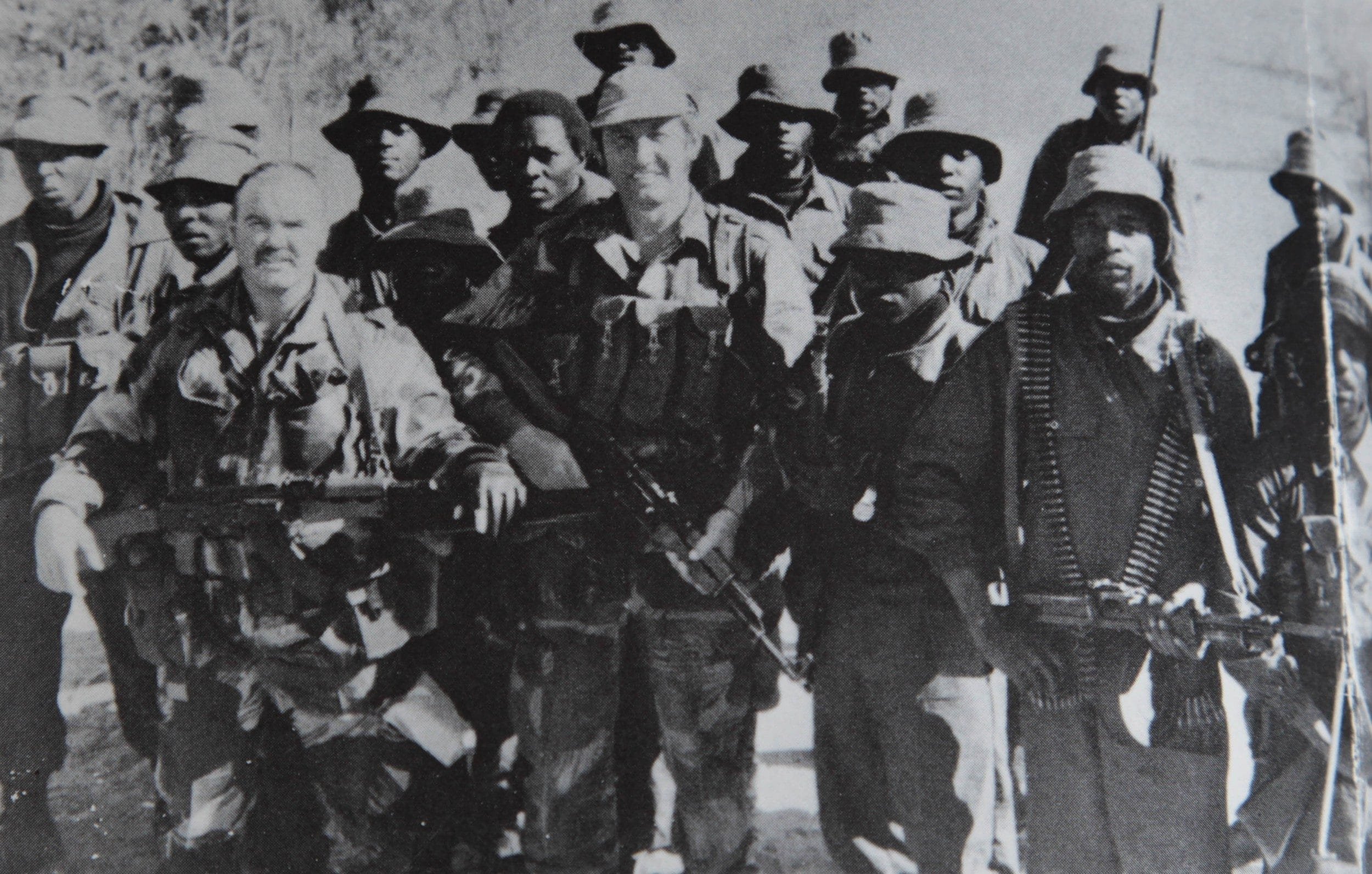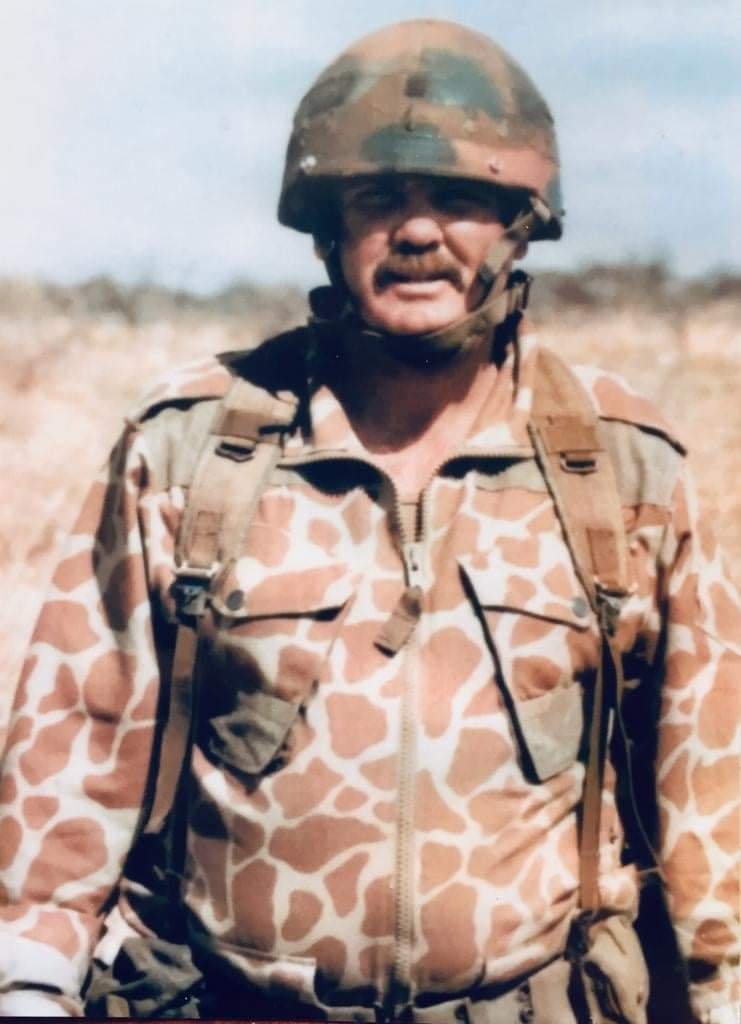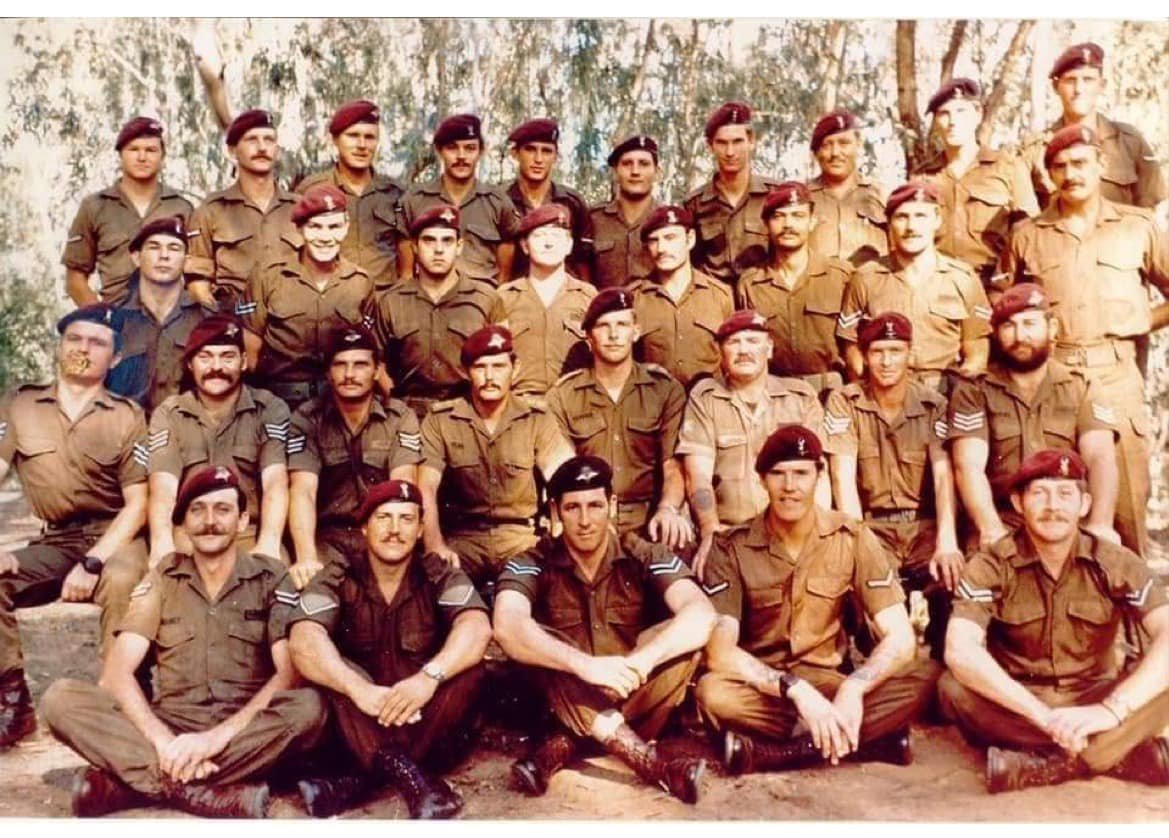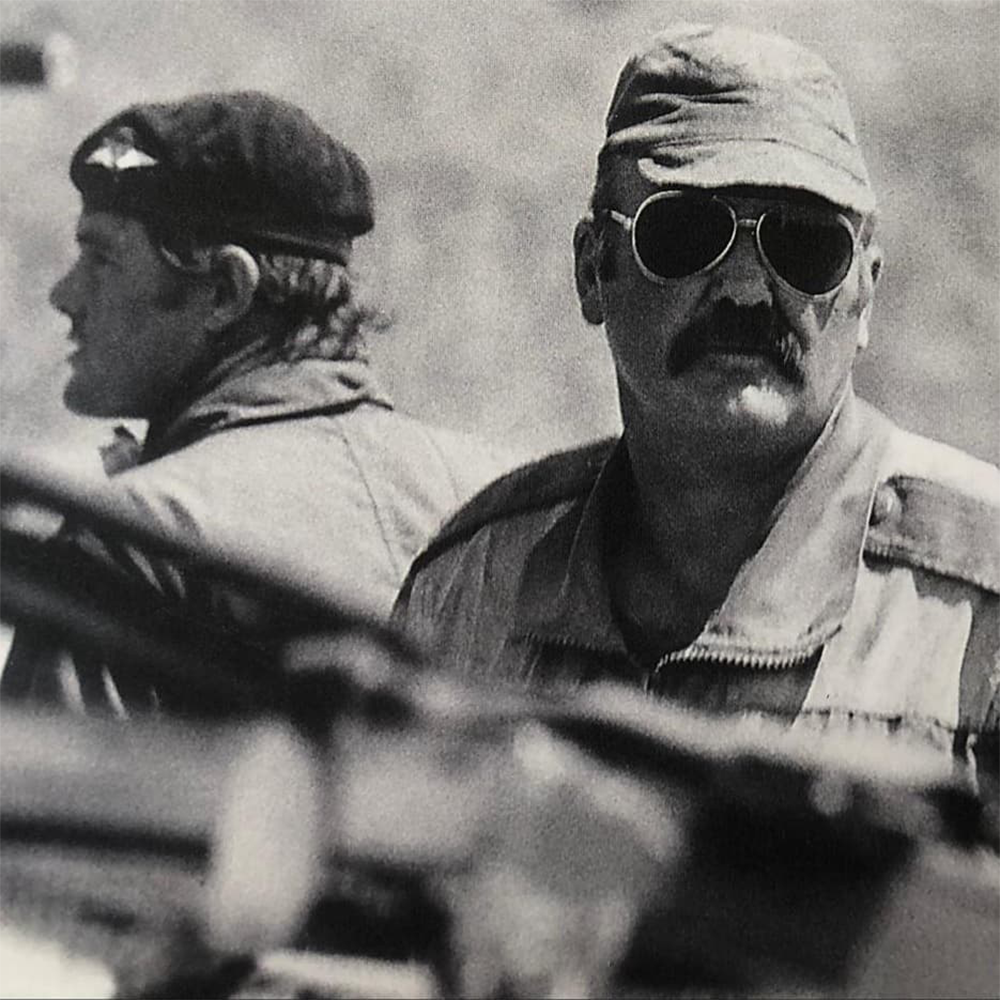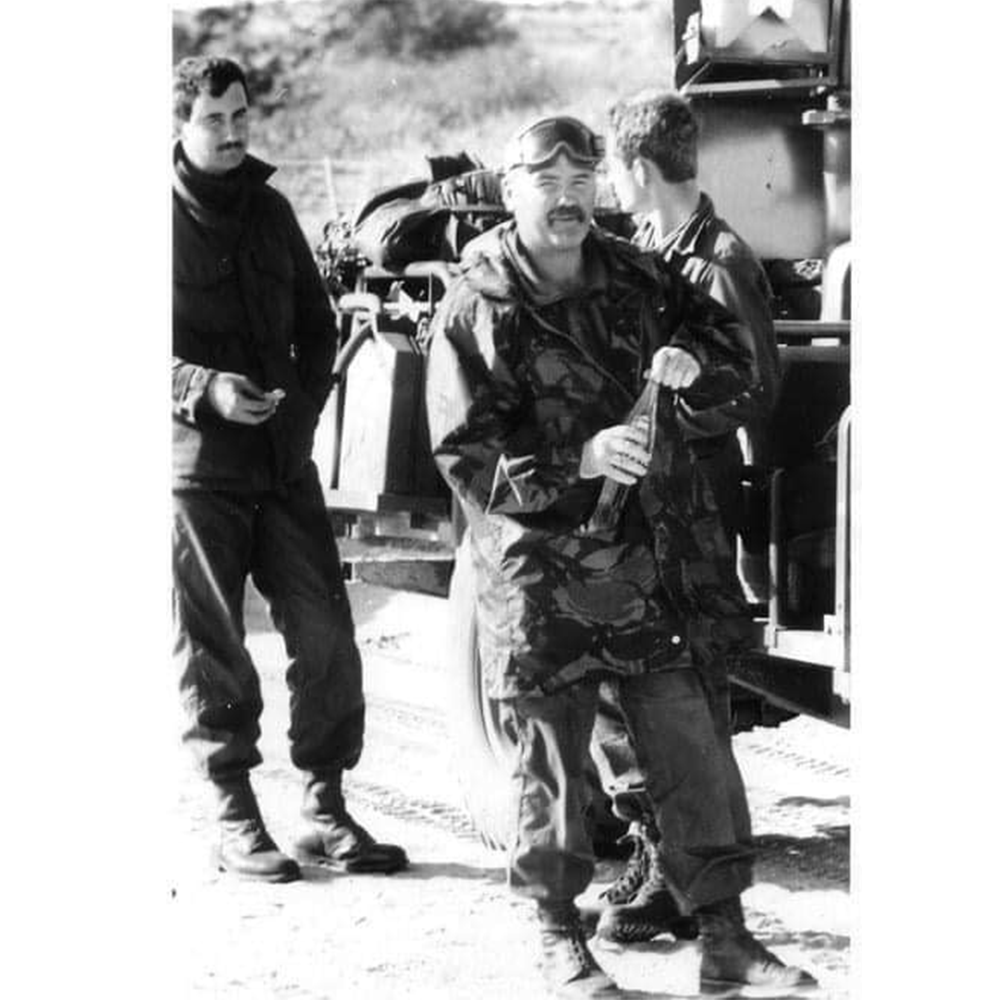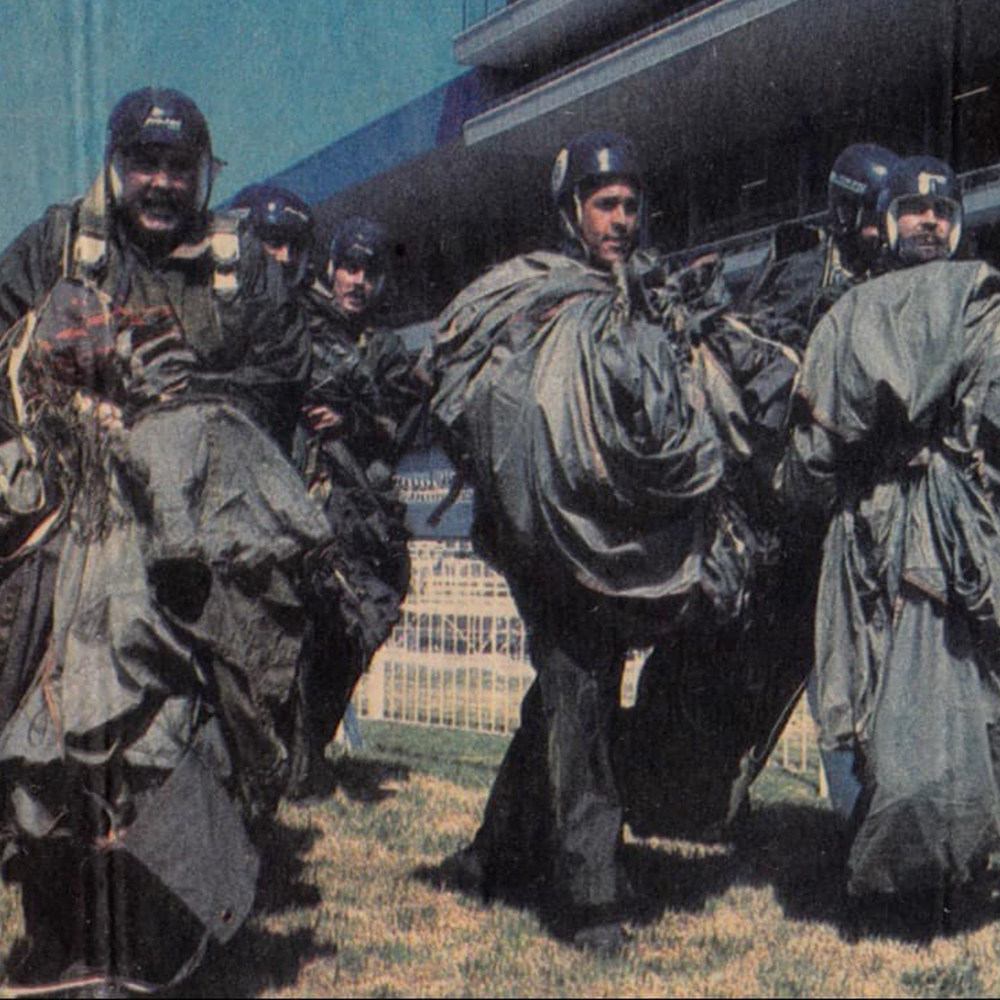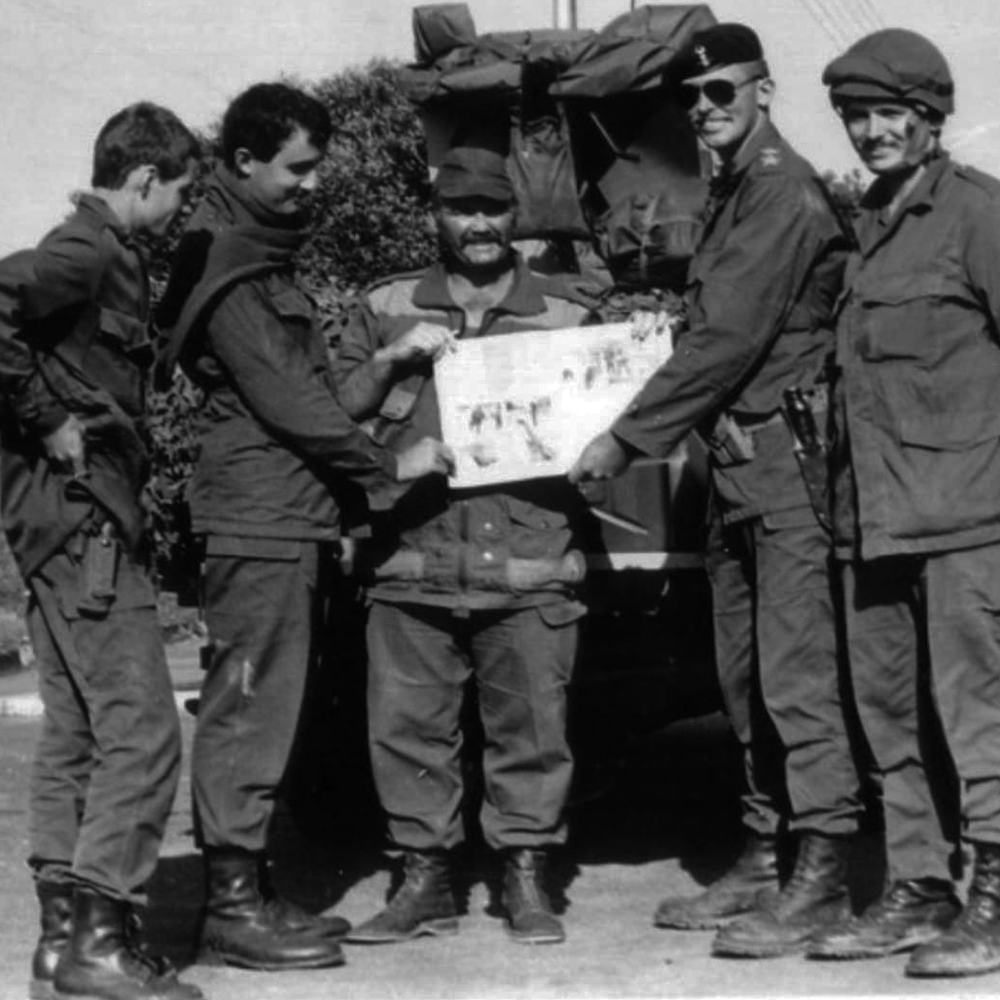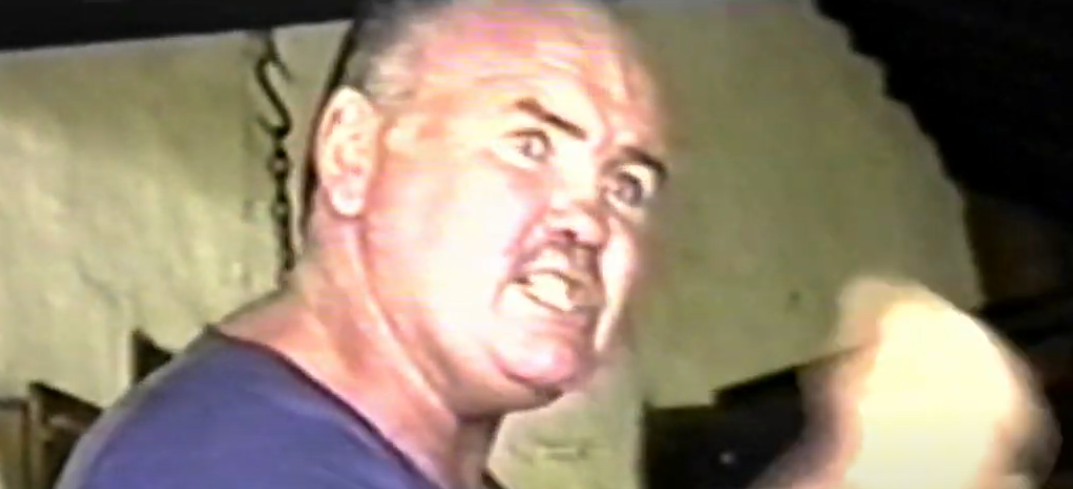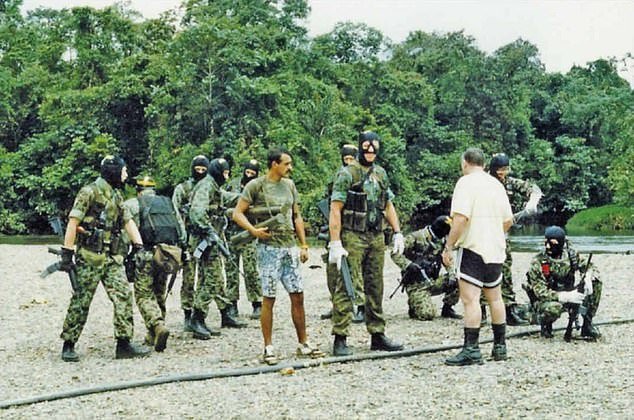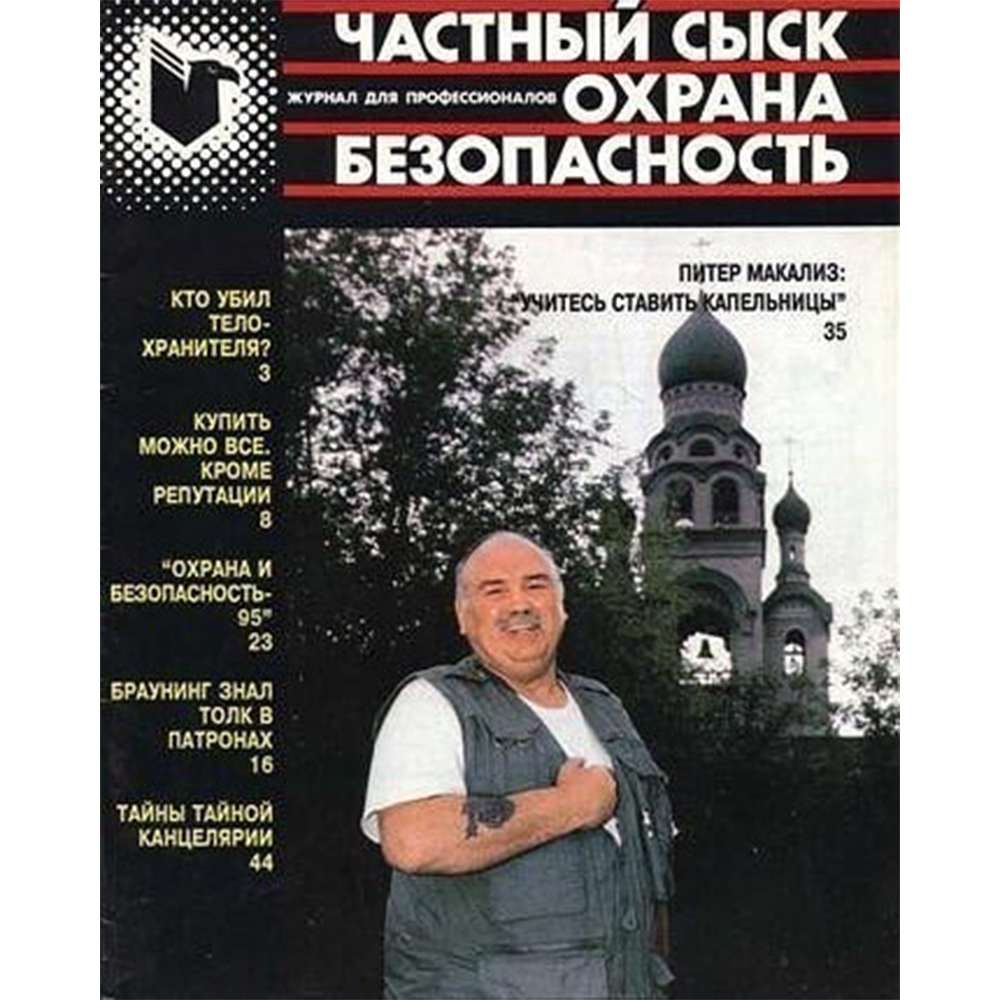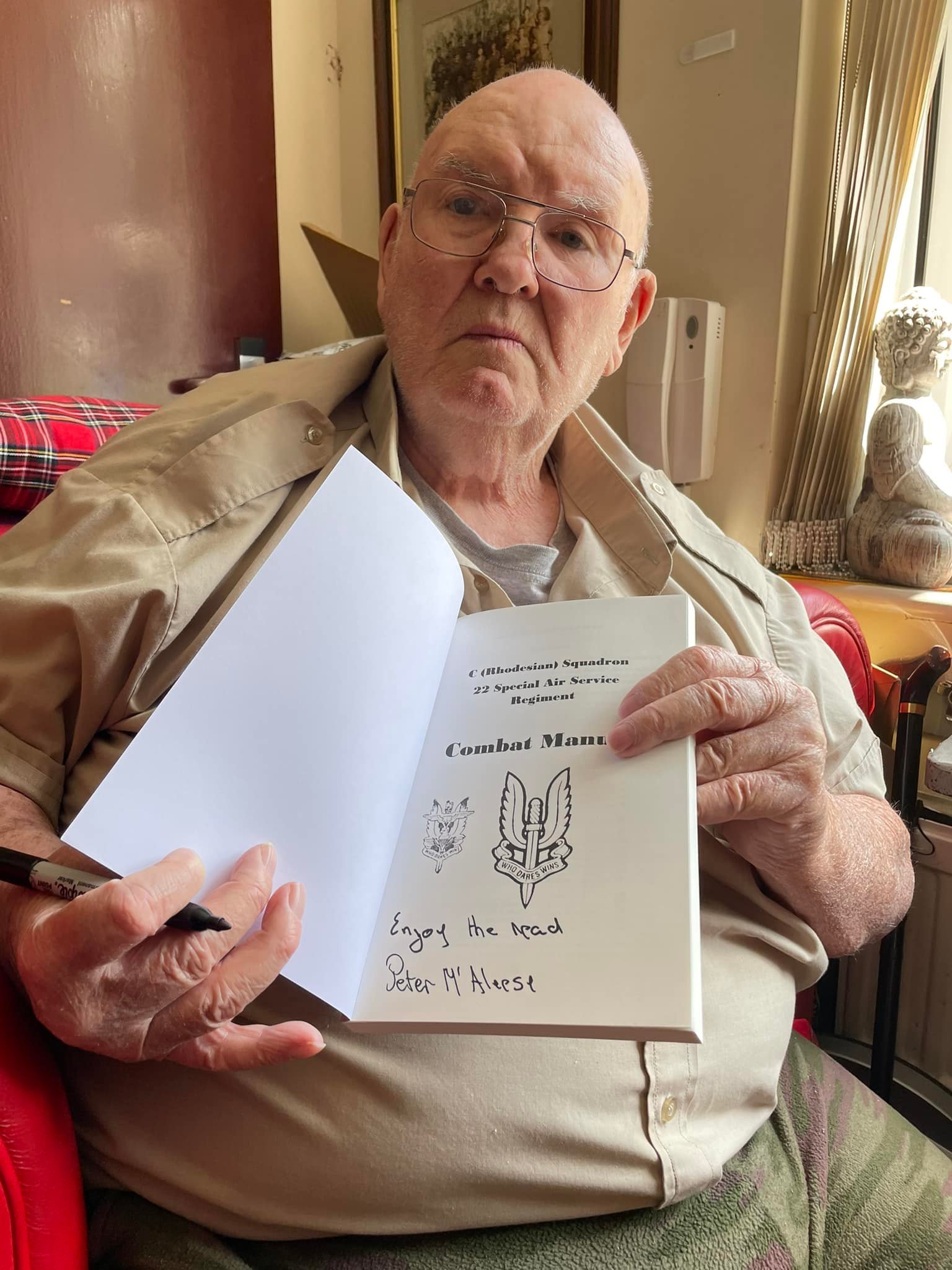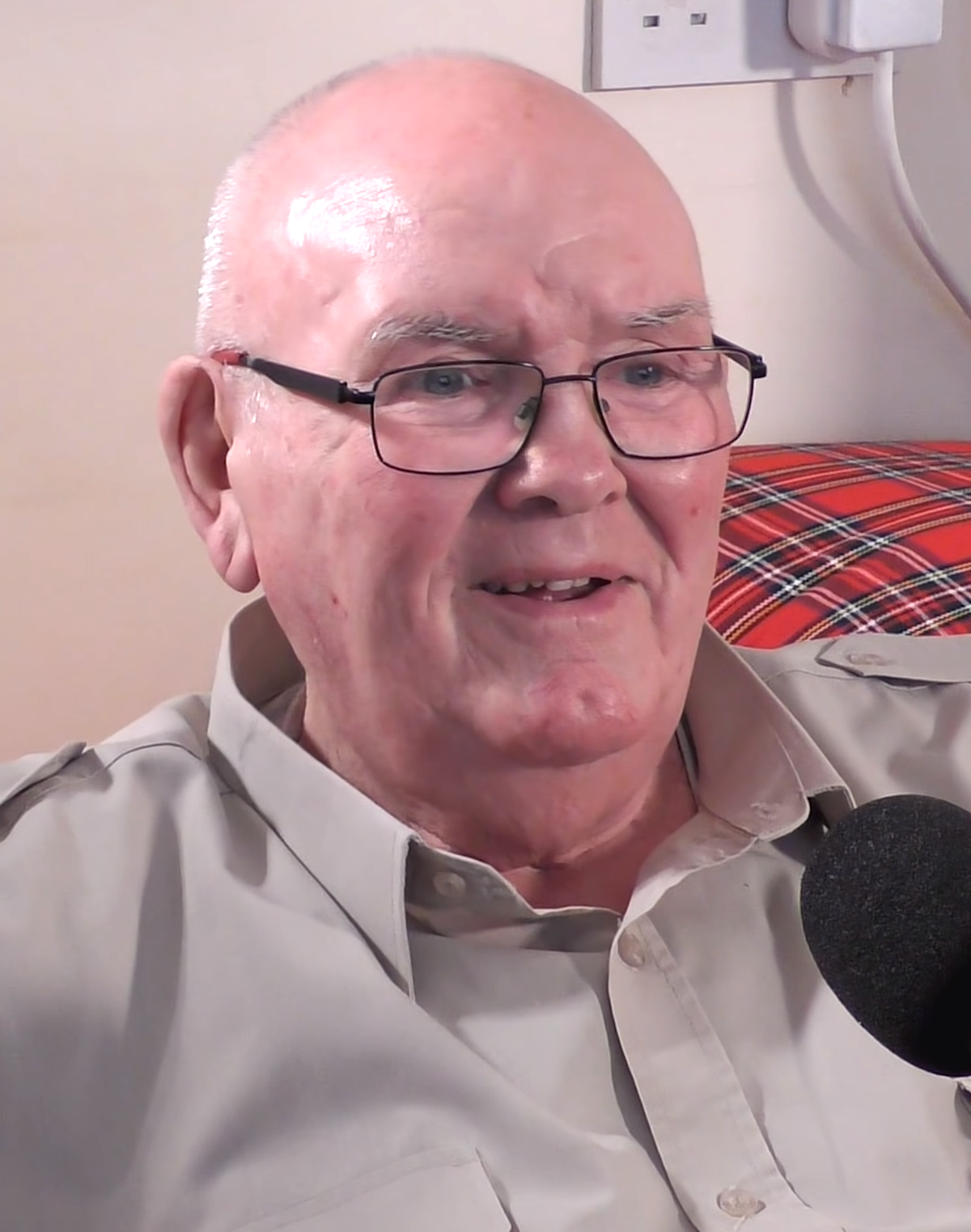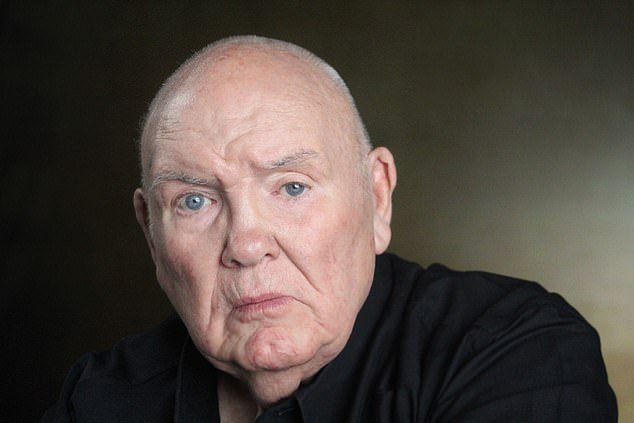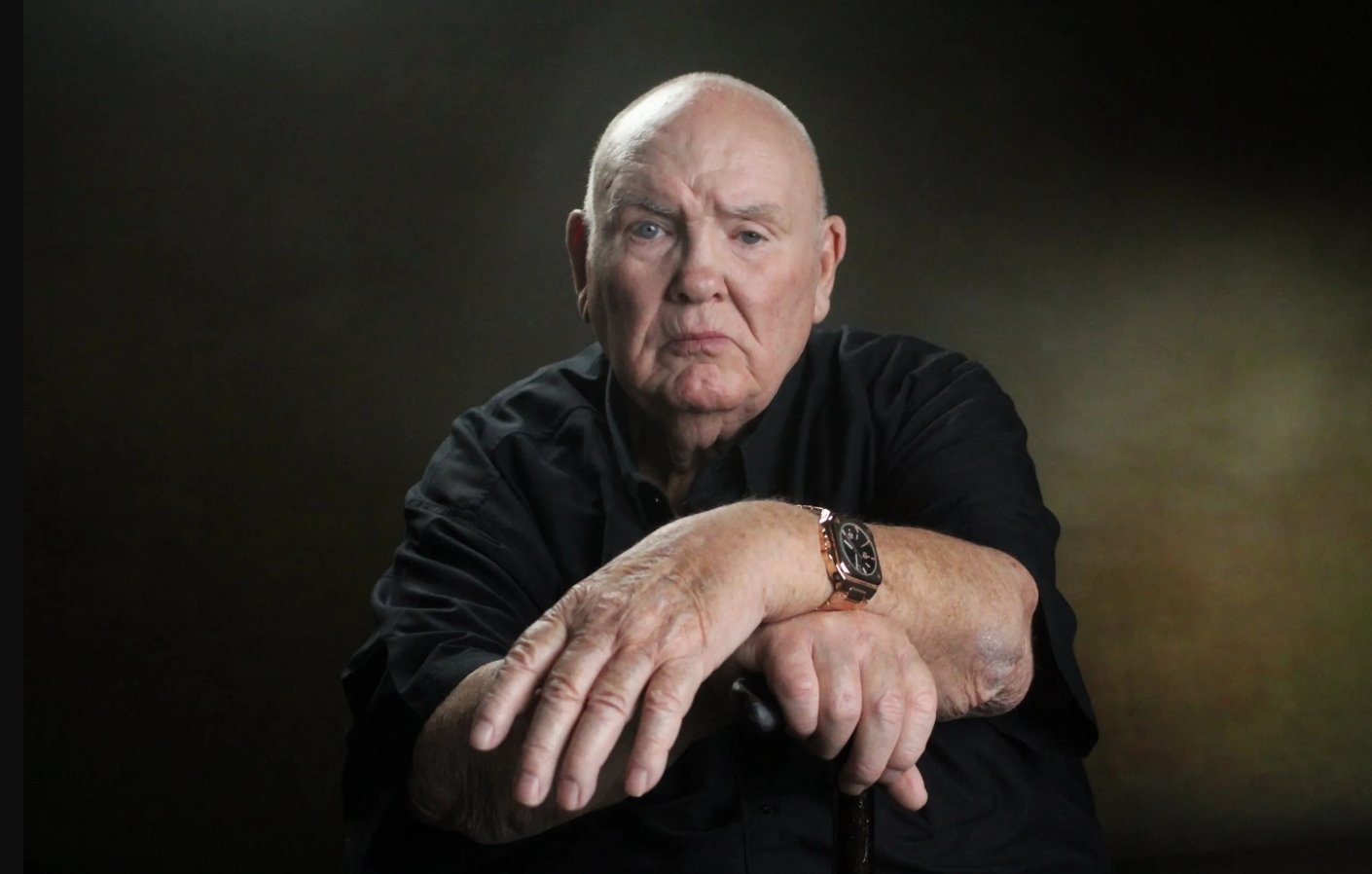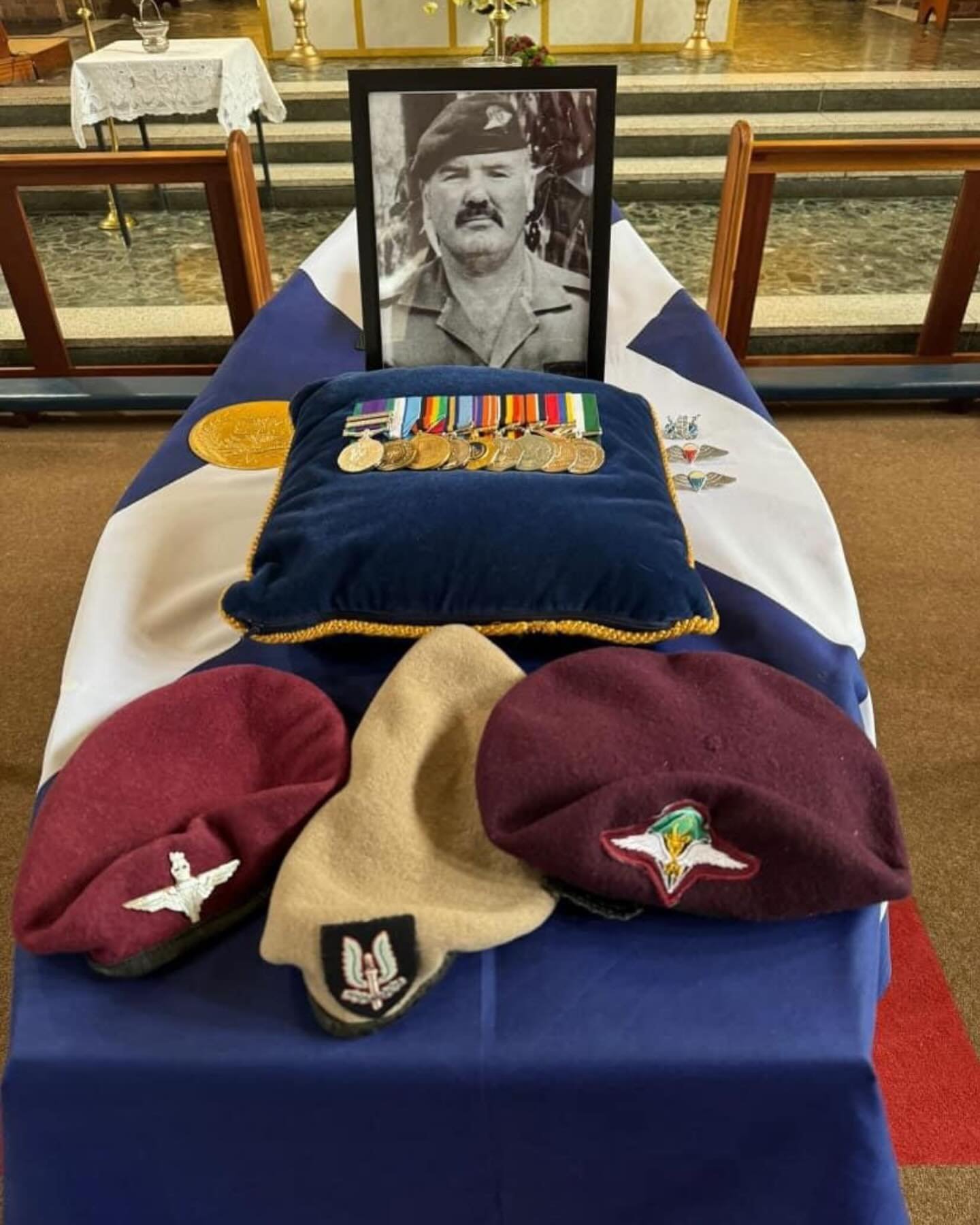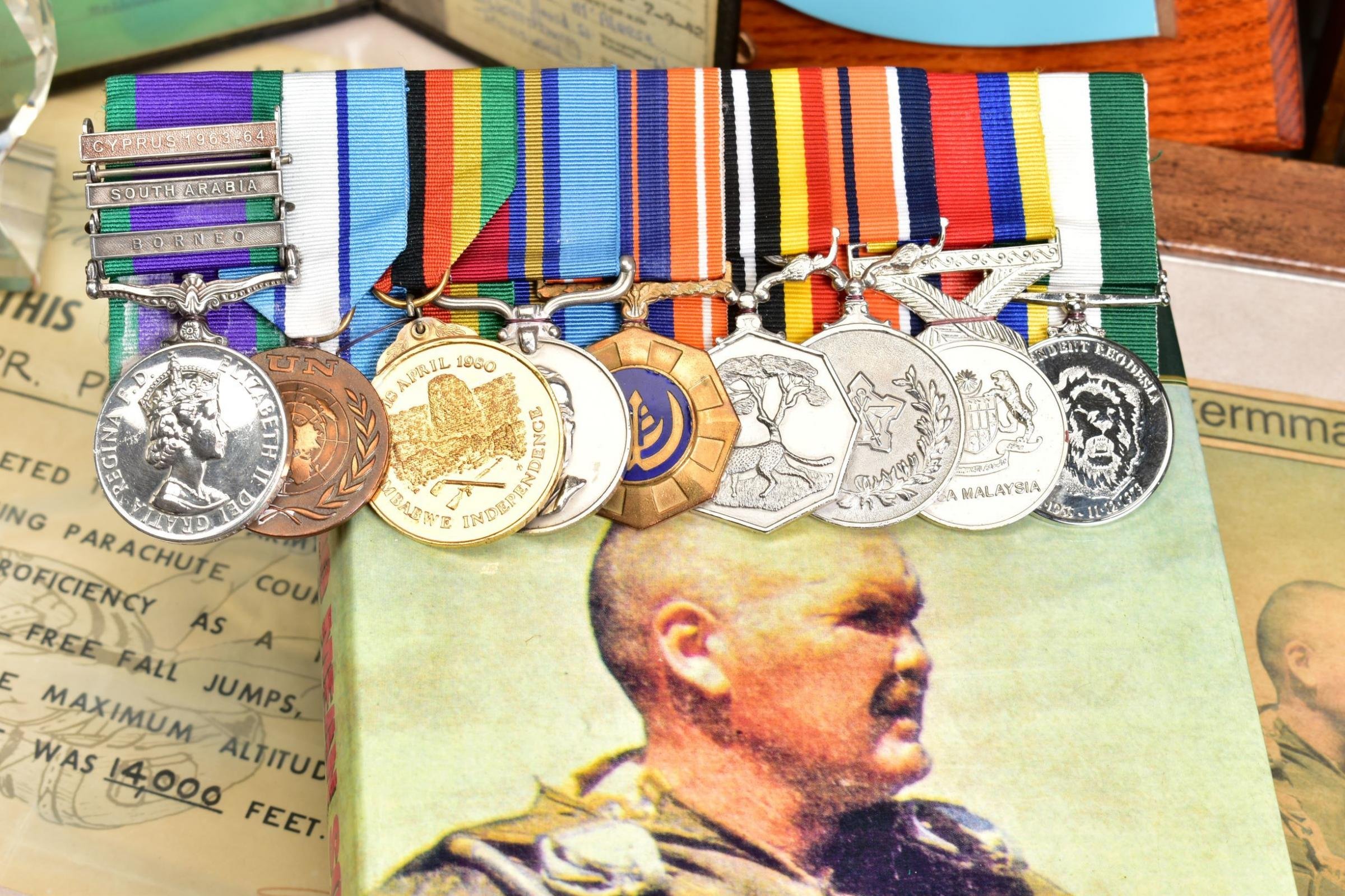
Peter McAleese was No Mean Soldier. His military career as a professional soldier and mercenary was one of the most incredible of the 20th century.
Peter McAleese was born in Glasgow, Scotland in on 7 September 1942 near Barlinnie Prison. Squatting with his mother and siblings in derelict and abandoned buildings, his family was evicted and temporarily housed at Barlinnie Prison - this gave Peter the notorious distinction of being “locked up” for the first time at the tender age of 5. Growing up in post-war Glasgow was extremely rough, with poverty and violence throughout Peter’s formative years. The 1953 film “The Red Beret”, and a chance meeting with a young British paratrooper on leave proved to be a momentous occasion. The maroon beret, camouflage smock, and jump boots were an instant point of attraction for a young Peter. From that moment on, he wanted nothing more to be a Paratrooper, and escape Glasgow.
Peter enlisted with the British Army's Parachute Regiment in Aberdeen in 1960 at the age of 17 under the service number 23782640. After basic training at the Parachute Regiment's Aldershot depot, he was assigned to the 1st Battalion, Parachute Regiment's mortar platoon. In 1962, Peter completed the legendary Special Air Service selection course and began a long career in Special Forces. He transferred to 'D' Squadron, 22 Special Air Service (SAS), where he served with the Squadron's Mobility Troop. He additionally qualified as a HALO (High Altitude - Low Opening) parachutist in Fort Bragg, being an early pioneer in this now integral ability within Special Forces units around the world.
While serving in the Squadron Mobility Troop, Peter deployed to Aden during the height of the Radfan Crisis. It was while serving in Aden where Peter first saw combat action when his 16-man SAS patrol engaged in a night time close quarters firefight with Arab guerillas. Additionally, he would participate in one of the first operational HALO jumps in military history during Operation Snowgoose. After a few months he was Returned to Unit from the SAS for disciplinary reasons, re-joining 1 Para, where he was posted to Bahrain and Cyprus in 1962–64. In 1964 he re-joined the SAS and served with 'D' Squadron's 16 (Air) Troop in Borneo during the Malaysia-Indonesia Confrontation. In 1968 he was again returned to the Parachute Regiment by the SAS for disciplinary offences related to violent disorder, re-joining 1 Para, which he served with from 1968 to 1969 as a Sergeant and instructor. In 1969 Peter resigned from the British Army, and began work in the oil industry as a security contractor. Civilian life was short lived, and Peter’s temper and aggression earned him three separate prison terms for violence in the early 1970s. Prison turned out to be rehabilitative, and even therapeutic for Peter and spurred him to have a positive mission in life again Peter left prison somewhat rejuvenated, and sought to enter the world of private military companies as a way to once again, be a soldier.
Ironically, one of the first assignments he was sought out for was an assassination mission at the behest of British intelligence, to kill the renegade Prime Minister of Rhodesia, Ian Smith. In only a few years, Peter would end up fighting for Ian Smith’s government in Rhodesia. Ultimately, the mission was exposed by the British tabloids and cancelled. However, Peter’s extensive military resume up to that point was made known in the closeted world of intelligence agencies and mercenary companies.
Peter was involved in the Hilton Assignment project, being recruited by James Kent and David Stirling (the founder of the original Special Air Service) for the private military company Watchguard International Limited. This was an attempt to overthrow Colonel Gaddafi, by raiding one of his prisons in Libya and releasing a large group of political prisoners who would then join in with an already in progress coup. However it was stopped by the American CIA after they applied pressure to the Italian and British Governments. At that time it was thought that Gaddafi was anti-communist and would be friendly to the west.
In the 1970s Peter left the United Kingdom for Africa, where he was a mercenary soldier in the Angolan Civil War for several months in 1976, fighting for the National Liberation Front of Angola, and witnessing some of the heinous crimes of ex-British Army Corporal Costas Georgiou, also known by the alias “Colonel Tony Callan”. After “Colonel Callan” was captured, he took command with the remains of Holden' Roberto’s rag-tag army. Given the rank of “Commandante”, he the led the surviving Angolans and white mercenaries on a difficult retreat towards Zaire.
In early 1977 he went to Rhodesia where he enlisted with the Rhodesian Special Air Service Regiment, completing a second Special Forces selection course. During his service in Rhodesia, he was given the service number 728200. He was assigned to the elite unit’s 'A' Squadron, fighting in the Rhodesian Bush War as a Corporal. He notably served during the massive airborne operation over Chimoio, Mozambique on 23 November 1977 - Operation Dingo. Disillusioned with some of the unprofessional conduct of some fellow Rhodesian Special Air Service members, he utilized the assistance of legendary British D-Day veteran Jock Hutton to transfer units. Hutton, who was serving as a Senior NCO for the Rhodesian Special Air Service bypassed several bureaucratic loopholes, and allowed for then Corporal Peter McAleese to become Peter McAleese, Special Branch.
While serving in Special Branch, he operated actively alongside the legendary Selous Scouts during this period. He also participated in clandestine missions in South Africa, to destabilize the African National Congress with plausible deniability on the part of the South African government. After the fall of Rhodesia in 1980, he enlisted with the South African Defence Force's 44 Parachute Brigade under the service number 80021355. He served as a Colour Sergeant in the early 1980s, where he assisted with the creation of a new “Pathfinder” reconnaissance unit and took part in the South African Border War. While serving with 44 Parachute Brigade, he was known by black African troops by the nickname “Kavundashira” meaning aggressive. Alternatively, he was known by the callsign “Papa Mike”, which were the NATO phonetic letters of his initials. He left the South African Army in 1984. That same year, he suffered a catastrophic parachute failure while conducting a high altitude jump for an annual COIN tactics demonstration. It would be his 504th parachute jump, and his last, as he plummeted to the ground and suffered massive injuries. He would spend the next two and a half year in a wheelchair, learning how to walk again. With the political and racial situation in South Africa rapidly deteriorating at this time, Peter returned home to Britain.
Coerced back into mercenary work again by a fellow Special Air Service veteran, Dave Tompkins, Peter’s career as a professional soldier climaxed with the dramatic events of 1989. Funded by Colombia’s Cali Cartel, Peter travelled to Colombia on a mission to kill the most dangerous man in the world at the time - Pablo Escobar. The operation was known as Operation Phoenix. The attack plan involved two helicopters flying into the compound at Hacienda Napoles as the mercenaries shot their way through Escobar's massive security operation to kill the drug lord, bringing back his head as a trophy. When they heard from an informant that Escobar was at his ranch they set off for the target. But the attack was never to happen. The helicopter carrying McAleese and Tomkins crashed as it flew low through the clouds over the Andes, killing the pilot. The events were told in the 2021 BBC Scotland documentary film ‘Killing Escobar’.
During his extensive military career, Peter received the following service medals:
UK: General Service Medal (Cyprus 1963-64, Borneo, South Arabia Bars), United Nations Forces In Cyprus (UNFICYP) Medal
Rhodesia: Zimbabwe Independence Medal, Rhodesian General Service Medal, Rhodesian Independence Medal (Commemorative)
South Africa: Pro Patria Medal, Southern Africa Medal, General Service Medal
Malaysia: Pingat Jasa Malaysia (Malaysia Service Medal)
In later life Peter became an author publishing several books including “No Mean Soldier”, “McAleese’ Fighting Manual”, “Beyond No Mean Soldier” and “Killing Escobar”. Perhaps most notable was “No Mean Soldier”, which was published in 1993. It became a bestseller, and set the record straight on his extensive career as a professional soldier. He also worked extensively as a training consultant around the globe, and appeared in several documentaries as an expert on the Special Air Service and South African Paras. In addition to this private security work, Peter also ran a public house in Birmingham. He spent his final years travelling the United Kingdom with his friend Joe Lockey, who assisted Peter with public appearances, book signings, and the logistics of telling his story to the world. Twice divorced, with three children, Peter’s only regrets in his later years were family ones. He regretted nothing of his life as a soldier. He would take comfort in his faith as a Roman Catholic, and the comradeship of the many men he fought with, and the many others he would train and mentor in his later years.
Peter passed away after a brief illness on 18 March 2024, aged 81.
“I'm just an ordinary person, who happened to find himself doing extraordinary things” - Peter McAleese
